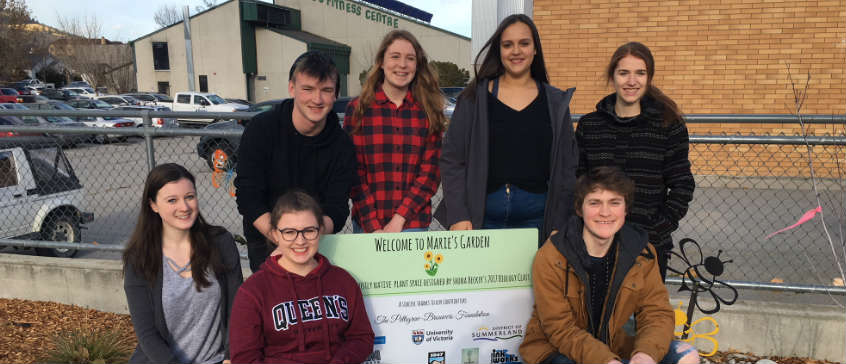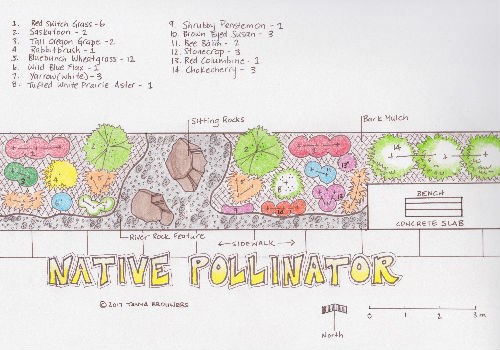Home / Science and the Environment / From Neglected Boulevard to Native Plant Space
From Neglected Boulevard to Native Plant Space

"If we are going to save environmentalism and the environment, we must also save an endangered species: the child in nature."
-Richard Louv, 2005.
"Nature-deficit" is a growing problem among youth. A UK study has shown that children are better able to identify Pokémon characters than native species in the community where they live. Fortunately, there is a growing recognition of the environmental, community, and educational benefits of outdoor, place-based learning. When students learn outside in their local environment their connection to and desire to protect the environment increases. In her final project for her Restoration of Natural Systems Diploma, Tanya Brouwers worked with a BC secondary school biology teacher and her class of Biology 11 students to implement place-based learning and develop a native plant garden. Read the full report.
 “When I first introduced the students to typical native plants of the Okanagan region, they were unable to identify any of them. After the project, they could name all the plants plus identify local pollinators and those plants with Okanagan Nation cultural significance. As future students are expected to maintain the space and monitor the plants for pollinators, it seems likely that this pride of place will grow from one biology class to the next.”
“When I first introduced the students to typical native plants of the Okanagan region, they were unable to identify any of them. After the project, they could name all the plants plus identify local pollinators and those plants with Okanagan Nation cultural significance. As future students are expected to maintain the space and monitor the plants for pollinators, it seems likely that this pride of place will grow from one biology class to the next.”
- Posted February 22, 2018
Visit Registration
2nd Floor | Continuing Studies Building University of Victoria Campus 3800 Finnerty Road | Victoria BC | CanadaTel 250-472-4747 | Email uvcsreg@uvic.ca
2025 © Continuing Studies at UVic
Legal Notices |
Sitemap

